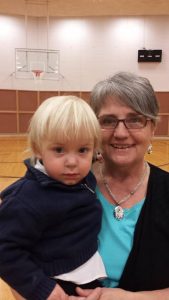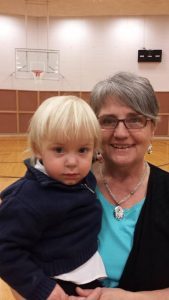 As you know I have been writing a new book – Becoming a Present Parent: Maximizing Presence in Five Minutes or Less. I started in August 2015 and finished in January 2016. Since then I have been learning the dance of being an independent author. Whew, it has required a lot of dance lessons!!
As you know I have been writing a new book – Becoming a Present Parent: Maximizing Presence in Five Minutes or Less. I started in August 2015 and finished in January 2016. Since then I have been learning the dance of being an independent author. Whew, it has required a lot of dance lessons!!
However, the book is in the formatting and cover design stage and it is going to actually make it to press this summer. Woohoo. I will breathe a sigh of relief for sure.
While we wait for the books release I thought I would share a bit of the content with you.
ACTIVE LISTENING
When we’re Present, we listen to connect with the speaker and to understand how they feel about what they’re saying. It’s active and engaged and seeks to hear the words and, more importantly, to hear the heart.
Because this type of listening doesn’t come naturally, I’ve had to develop steps to make it happen more often. They may be helpful to you also.
A. STOP what you’re doing. Turn away from any technology, book or project. If you truly can’t stop, tell your child you can see this is important to them and you want to hear what they have to say. Set a specific time when you’ll be free and keep it. Saying “we’ll talk about it later” is not specific and sends the message you’re not available to them, that whatever else you’re doing is more interesting or more important. If at all possible STOP and listen now!
B. Make eye contact with your child. I remember reading that an infant can tell the difference between a face which is in order and one with the features jumbled.
From my experience, I know babies are interested their parent’s faces. They look at their parent’s faces constantly and reach out to touch them. Infants want us to look back at them. As we grow older, desire for eye contact with the people in our lives that matter to us remains.
Eye contact is looking directly into your child’s eyes and not looking away at other things or looking down. When we look at our children as we listen to them, it sends a powerful message that we care, that we hear them, that they matter.
C. Respond to what your child is feeling, not only what they’re saying. When you’re Present you’ll respond to feelings more quickly and more accurately. This helps your child feel heard. You can say things like, “Boy – how maddening!” or “You didn’t like that did you?” or “How did you feel?” This helps your child know that you view their feelings as valid and important.
D. Listen with patience and interest. Whatever you’re feeling, your child will know! They’re like energy magnets. If your energy is inwardly impatient, they’ll know. If you’re dying to get back to your stuff, they’ll feel it. If you’re bored out of your mind, it’s coming across loud and clear. It may all be on a subconscious level, but they know. Hold thoughts in your mind which will help you maintain interest and patience.
For example, you can think, “I sure love this kid. They’re so interesting, funny, kind, thoughtful,” whatever. Hold thoughts which allow you to embrace fully the moment you’re sharing with your child.
Avoid interrupting. Ask only those questions which help clarify. Your job at this moment is not to teach, reprimand or to fix. It’s to listen.
Being present with your child is an end in itself. It isn’t about resolution, teaching, making progress, none of that. It’s about connection, pure and simple. You can always teach later. Right now, be Present!
During a day, there are dozens of opportunities to stop and listen. We can’t actively listen in all of them. But if we can increase those times we do, it will have a big impact on our relationships.
Remember, being Present is a gift we give another person without thought of return. It means giving full attention, our whole self, nothing left on the table.
I do have something special in the works to add a bit of zing to your summer and to help you get a head start on Becoming a Present Parent. Watch for it. : )
Happy Summer,
Mary Ann

